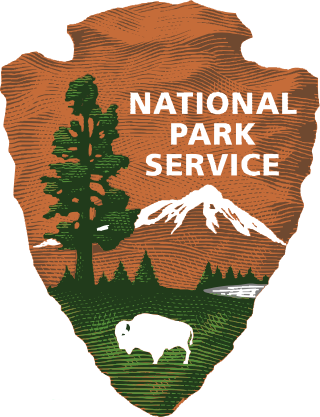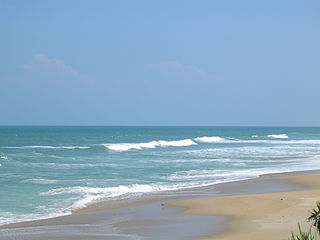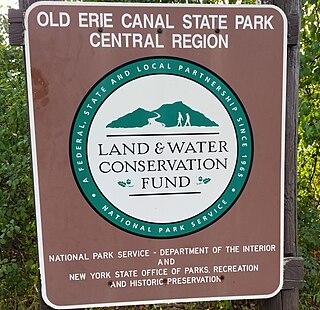Related Research Articles

The National Park Service (NPS) is an agency of the United States federal government, within the U.S. Department of the Interior. The Service manages all national parks; most national monuments; and other natural, historical, and recreational properties, with various title designations. The U.S. Congress created the agency on August 25, 1916, through the National Park Service Organic Act. Its headquarters are in Washington, D.C., within the main headquarters of the Department of the Interior.

A visa is a conditional authorization granted by a polity to a foreigner that allows them to enter, remain within, or leave its territory. Visas typically include limits on the duration of the foreigner's stay, areas within the country they may enter, the dates they may enter, the number of permitted visits, or if the individual can work in the country in question. Visas are associated with the request for permission to enter a territory and thus are, in most countries, distinct from actual formal permission for an alien to enter and remain in the country. In each instance, a visa is subject to entry permission by an immigration official at the time of actual entry and can be revoked at any time. Visa evidence most commonly takes the form of a sticker endorsed in the applicant's passport or other travel document but may also exist electronically. Some countries no longer issue physical visa evidence, instead recording details only in immigration databases.
The Visa Waiver Program (VWP) is a program of the United States federal government that allows nationals of specific countries to travel to the United States for tourism, business, or while in transit for up to 90 days without having to obtain a visa. It applies to all fifty U.S. states, the District of Columbia, Puerto Rico, and the U.S. Virgin Islands, as well as to Guam and the Northern Mariana Islands, which also have an additional program with waivers for more nationalities; American Samoa has a similar but separate program.
The National Forest Adventure Pass is a recreation fee pass issued by the United States Forest Service that permits bearers in designated regions of four National Forests in Southern California to park their cars for the purpose of recreation. Though it was introduced during the "Recreation Fee Demonstration Program" (Fee-Demo) which ended on November 21, 2004, the Forest Service continues to administer the program, nearly unchanged, under the Federal Lands and Recreation Enhancement Act. This act, derisively dubbed by some as the "Recreation Access Tax" (RAT), was passed in December 2004 as part of the Omnibus Appropriations Bill. The four national forests it applies to are the Angeles National Forest, Cleveland National Forest, Los Padres National Forest and San Bernardino National Forest.

A biometric passport is a traditional passport that has an embedded electronic microprocessor chip, which contains biometric information that can be used to authenticate the identity of the passport holder. It uses contactless smart card technology, including a microprocessor chip and antenna embedded in the front or back cover, or centre page, of the passport. The passport's critical information is printed on the data page of the passport, repeated on the machine readable lines and stored in the chip. Public key infrastructure (PKI) is used to authenticate the data stored electronically in the passport chip, supposedly making it expensive and difficult to forge when all security mechanisms are fully and correctly implemented.


United States passports are passports issued to citizens and nationals of the United States of America. They are issued exclusively by the U.S. Department of State. Besides passports, limited-use passport cards are issued subject to the same requirements. It is unlawful for US citizens and nationals to enter or exit the country without a valid US passport or passport-replacement document compliant with the Western Hemisphere Travel Initiative, though there are many exceptions; waivers are generally granted for U.S. citizens returning without a passport, and the exit requirement is not enforced. As of September 2023, a United States passport allows visa-free travel to 185 countries and territories, being ranked as the seventh most powerful in the world in terms of travel freedom.

Visitors to the United States must obtain a visa from one of the U.S. diplomatic missions unless they come from one of the visa-exempt or Visa Waiver Program countries. The same rules apply for travel to all U.S. states, Washington, D.C., Puerto Rico and the U.S. Virgin Islands, as well as to Guam and the Northern Mariana Islands with additional waivers, while similar but separate rules apply to American Samoa.

The United States passport card is an optional national identity card and a travel document issued by the U.S. federal government in the size of a credit card. Like a U.S. passport book, the passport card is only issued to U.S. nationals exclusively by the U.S. Department of State, compliant to the standards for identity documents set by the REAL ID Act, and can be used as proof of U.S. citizenship and identity. The passport card allows its holders to travel by domestic air flights within the U.S., and to travel by land and sea within North America. However, the passport card cannot be used for international air travel.

The United States' Land and Water Conservation Fund (LWCF) is a federal program that was established by Act of Congress in 1965 to provide funds and matching grants to federal, state and local governments for the acquisition of land and water, and easements on land and water, for the benefit of all Americans. The main emphases of the fund are recreation and the protection of national natural treasures in the forms of parks and protected forest and wildlife areas. The LWCF has a broad-based coalition of support and oversight, including the National Parks Conservation Association, Environment America, The Wilderness Society, the Land Trust Alliance, the Nature Conservancy, the National Wildlife Federation, and The Conservation Fund.

A B visa is one of a category of non-immigrant visas issued by the United States government to foreign nationals seeking entry for a temporary period. The two types of B visa are the B-1 visa, issued to those seeking entry for business purposes, and the B-2 visa, issued to those seeking entry for tourism or other non-business purposes. In practice, the two visa categories are usually combined and issued as a "B-1/B-2 visa" valid for a temporary visit for either business or pleasure, or a combination of the two. Nationals of certain countries do not usually need to obtain a visa for these purposes.

A Barbados passport is a travel document issued to citizens of Barbados, in accordance with Citizenship Act from 1978, the Immigration Act from 1997, and the Barbados Constitution, for the purpose of facilitating international travel. It allows the bearer to travel to foreign countries in accordance with visa requirements, and facilitates the process of securing assistance from Barbados consular officials abroad, if necessary.
The Water Resources Development Act of 1999, Pub. L. 106–53 (text)(PDF), was enacted by Congress of the United States on August 17, 1999. Most of the provisions of WRDA 1999 are administered by the United States Army Corps of Engineers.

Visitors to the mainland of the People's Republic of China must obtain a visa from one of the Chinese diplomatic missions, unless they are a national of one of the visa-exempt countries. The residents of Hong Kong, Macau, and Taiwan with Chinese nationality can stay in Mainland indefinitely as long as their travel documents are valid.

Sri Lankan passports are issued to citizens of Sri Lanka for the purpose of international travel. The Department of Immigration and Emigration] is responsible for issuing Sri Lankan passports.
The visa policy of the Philippines is governed by Commonwealth Act No. 613, also known as the Philippine Immigration Act, and by subsequent legislation amending it. The Act is jointly enforced by the Department of Foreign Affairs (DFA) and the Bureau of Immigration (BI). Visitors from 157 countries are permitted visa-free entry for periods ranging from 14 to 59 days.
The visa policy of South Africa is how the South African government determines who may and may not enter South Africa. Visitors to South Africa must obtain a visa from one of the South African diplomatic missions unless they come from one of the visa-exempt countries, in which case they get a "Port of Entry Visa". Visitors who require a visa must apply in person and provide biometric data.

Overseas Citizenship of India (OCI) is a form of permanent residency available to people of Indian origin and their spouses which allows them to live and work in India indefinitely. It allows the cardholders a lifetime entry to the country along with benefits such as being able to own land and make other investments in the country.
The visa policy of Malaysia consists of the requirements for foreign nationals to travel to, enter, and remain in Malaysia. Most visitors to Malaysia are granted visa-free entry for a period of 90, 30, or 14 days respectively. However, nationals from some countries must first obtain a visa from one of the Malaysian Diplomatic Missions before being allowed into the country. All visitors must hold a passport valid for at least 6 months.

The visa policy of Singapore deals with the requirements to enter Singapore. A foreign national, depending on their country of origin, must meet certain requirements to obtain a visa, which is a permit to travel, to enter and remain in the country. A visa may also entitle the visa holder to other privileges, such as a right to work, study, etc. and may be subject to conditions.
References
![]() This article incorporates public domain material from websites or documents of the National Park Service .
This article incorporates public domain material from websites or documents of the National Park Service .
- 1 2 3 4 "America the Beautiful Passes". nps.gov. Retrieved 24 July 2020.
- ↑ Authorizing Legislation
- ↑ Consolidated Appropriations Act, 2005, Public Law 108-447, 118 Stat. 2809 (full text).
- ↑ Digest of Federal Resource Laws of Interest to the U.S. Fish and Wildlife Service - Federal Lands Recreation Enhancement Act (REA)
- ↑ "USGS store". USGS.gov. Retrieved 24 July 2020.
- ↑ Elliot, Christopher. "National Parks Pass: The best $80 you'll ever spend". usatoday.com. Retrieved 5 October 2020.
- ↑ Scott, Douglas. "Seven Reasons Why You Should Buy an America the Beautiful Pass". outdoor-society.com. Retrieved 5 October 2020.
- ↑ "America the Beautiful Passes". parksandpoints.com. Retrieved 5 October 2020.
- ↑ Webb, Ted. "5 Benefits of an America The Beautiful Pass". nationalparkwanderlust.com. Retrieved 5 October 2020.